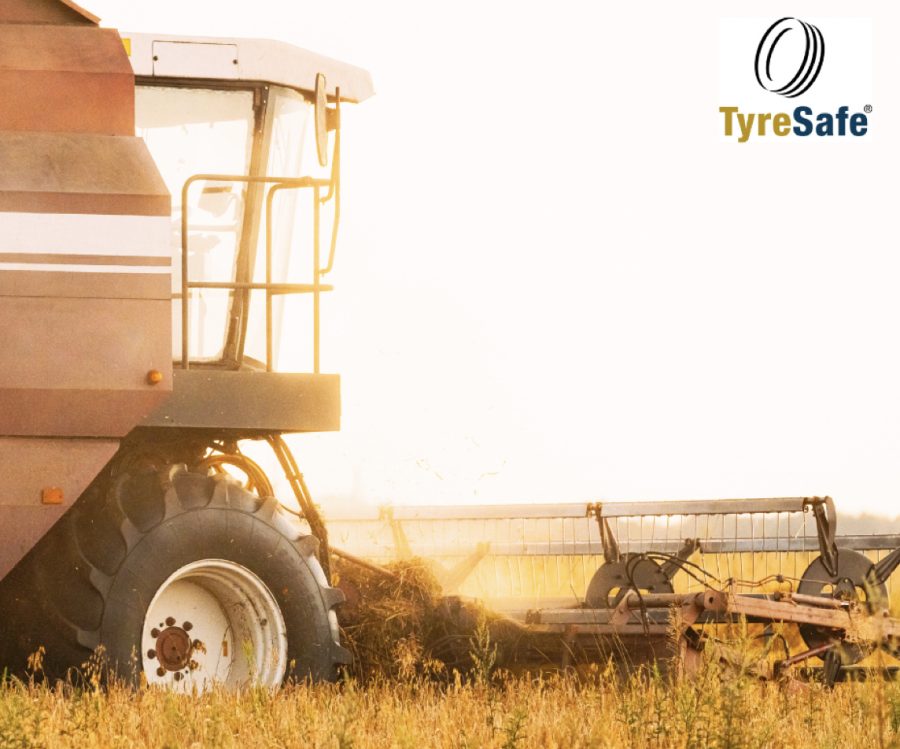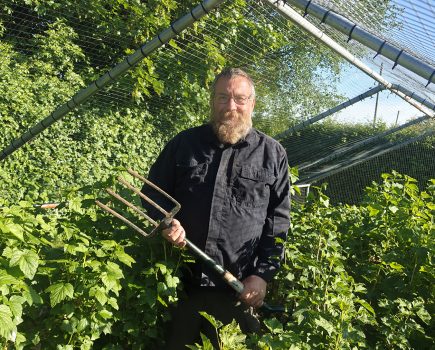TyreSafe, the UK tyre safety charity, has launched a vital campaign to emphasise the importance of thorough tyre maintenance for farmers, during Farm Safety Week, an initiative run by the Farm Safety Foundation (Yellow Wellies).
The campaign aims to raise awareness about the necessity of inspecting the condition of tyres on all farming vehicles, including heavy machinery, 4x4s, trailers, and other means of transportation, to ensure a smooth and safe harvest and appropriate agricultural tyre husbandry all year round.
The load on agricultural tyres can be immense. For example, a fully loaded combine harvester can weigh upwards of 30 tonnes. This significant weight places enormous stress on the tyres, making them susceptible to wear and tear, and increasing the likelihood of defects if not properly maintained. The consequences of a tyre failure in such heavy machinery can be catastrophic, leading to costly downtime, expensive repairs, and potential injury.
Which means that unnecessary and unforeseen downtime during harvest could cost a farmer crucial lost revenue. Additionally, the cost of replacing a single agricultural tyre can easily climb into the thousands, not including the potential damage to the machine itself or the crop losses incurred due to delays. Here are five essential tyre safety tips to help farmers stay safe and productive:
Tyre Pressure: Maintaining the right tyre pressure is essential for minimising soil compaction, ensuring good traction, and reducing fuel consumption. Adjust tyre pressures appropriately for field and road use to optimise performance, even though it might seem like a hassle. Properly inflated tyres can make a significant difference in your farm operations.
Tyre Type: Consider using VF (Very Flexion) tyres, which have softer sidewalls and can carry heavier loads at lower pressures. This helps reduce soil compaction. Additionally, selecting the right tread pattern for your specific tasks is important for maximising efficiency and reducing wear.
Weight and Load: Overloading machinery can damage tyres, leading to punctures and downtime. Always check the weight limits for your tyres and ensure you are not exceeding them. Properly balancing the load on your machinery will help extend tyre life and prevent unexpected breakdowns.
Inspection and Maintenance: Regularly inspect your tyres for wear and tear, cuts, and cracks. Don’t forget to check the wheel rims as well, as they can crack when used on rough terrain. Routine maintenance and early detection of issues can prevent larger problems down the line.
Storage: When storing machinery, try to take the weight off the tyres to prevent cracking. If this is not possible, inflate the tyres to a higher pressure to help maintain their shape and integrity during periods of inactivity.
TyreSafe have produced an educational video, interviewing agricultural tyre expert, Matt Richardson, Protyre Sales Manager, Agriculture and OHT. The video explains what to look out for and what to do in the event of a problem with a tyre and outlines the average life expectancy of an agricultural tyre. TyreSafe also publishes a range of resources to support farmers with maintaining and checking tyres on other vehicles, including 4x4s and trailers. The charity uses the ACT acronym to remind farmers, and other road users, to check the air pressure, condition and tread of their tyres once a month and before long journeys.
Stuart Lovatt, TyreSafe Chair, said: “A major tyre defect on heavy machinery could spell disaster for both profit margins and safety. Proper tyre maintenance is essential to prevent mishaps that could disrupt the harvest and compromise the well-being of our farmers. By taking the time to check their tyres, farmers can protect their investments and ensure a successful and safe harvest season.”
Stuart Lovatt adds, “We understand the pressures farmers face during harvest, but neglecting tyre maintenance can lead to significant setbacks at this crucial time. Our goal is to support farmers by providing them with the knowledge and resources to keep their operations running smoothly and safely.”
More news like this can be found in The Country Smallholder magazine. Subscribe here.
For FREE updates from the world of smallholding, sign up for The Country Smallholder newsletter here.








